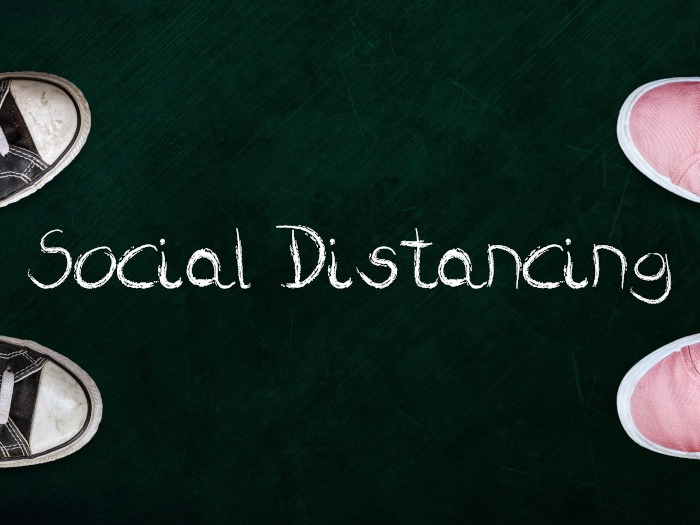Fighting the COVID-19 outbreak needs considerable medical, scientific, and economic support. But on a micro-level, there are also individual behaviors that must be addressed. In an article published in The Lancet Public Health, scientists from Princeton and the Sunnybrook Research Institute reviewed eight behavioral pitfalls that can hamper our judgment when it comes to dealing with the pandemic. They also offered solutions that can help in dealing with these behavioral pitfalls. [1]

Are norms like social distancing triggering behavioral pitfalls? Photo Credit: Shutterstock
These eight traits are:
Fear of the unknown: Uncertain threats and risks attract more attention than regular events and known risks. Coronavirus with its unknown origins has triggered this response. Repeated reminders on the evolving situation can help avoid any development of complacency in people.
Personal embarrassment: Preventive strategies, such as avoiding touching your face, have required behavioral change. Any lapse in such behavior in public can be seen as a personal failure, leading to shame and embarrassment. Such a reaction should be seen as normal behavior. The study authors suggest using celebrities to lessen stigma.
Neglecting competing risks: The overwhelming preoccupation with COVID-19 leads to the neglect of many other requirements for good health, such as companionship, adequate sleep, and exercise. One stays mindful of other everyday hazards that can be overlooked.
Invisible diseases: The physical distancing measures required in the current scenario can potentially aggravate chronic psychiatric disorders. This requires increased mental health care and communication along with a supportive home environment.
No clear feedback: Since the situation in dealing with COVID-19 is still developing, many people feel that incubation periods, test results, and interventions are taking too long. To avoid such public perception, authorities should avoid putting the spotlight on such random volatility and unstable updates, which can be mistaken for real trends.
Status quo bias: Human behavior is driven by the need to maintain the status quo. It is an impulse to mitigate losses. It can be countered by emphasizing the future potential gains of a change.
Ingrained societal norms: Social distancing often requires us to reject certain ingrained social norms, such as shaking hands, caring for grandparents, or meeting people. Hence, it is important to keep reminding people of the need for a change. This should be supported by highlighting people who have successfully changed their behavior.
Hindsight bias: Finally, we have to also brace against the bias that people will develop with hindsight. Once the pandemic subsides, there would scrutiny and criticism of the handling of the situation. While some of it may be correct, it may not be fair. We have to avoid second-guessing the attempts at containment and treatment too harshly.
For the latest updates on COVID-19, please visit the CDC link and the NIH link. [2] [3]
